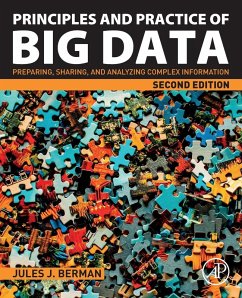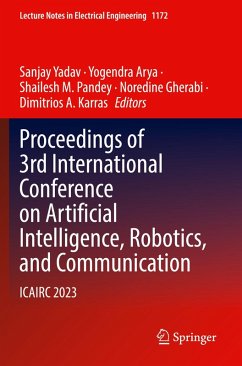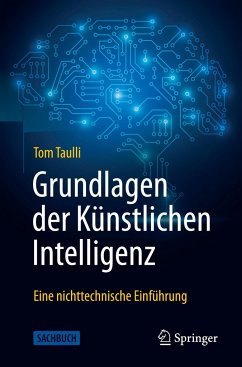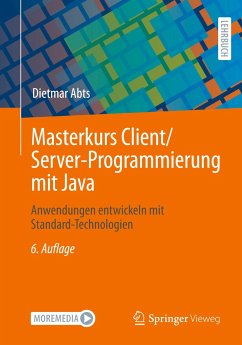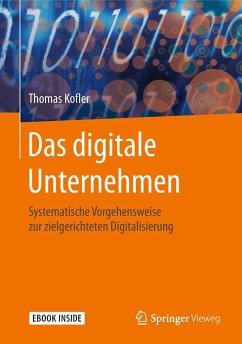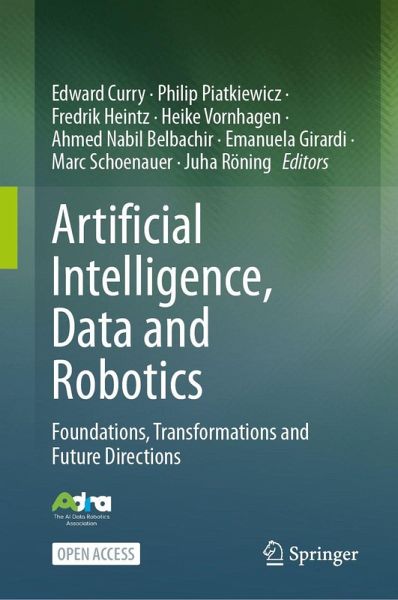
Artificial Intelligence, Data and Robotics
Foundations, Transformations and Future Directions
Herausgegeben: Curry, Edward; Piatkiewicz, Philip; Heintz, Fredrik; Vornhagen, Heike; Belbachir, Ahmed Nabil; Girardi, Emanuela; Schoenauer, Marc; Röning, Juha
Versandkostenfrei!
Versandfertig in 6-10 Tagen
38,99 €
inkl. MwSt.

PAYBACK Punkte
19 °P sammeln!
This open access book explores the rapidly evolving landscape of artificial intelligence, data and robotics (ADR), highlighting their foundational principles, transformative applications and future directions. Emphasising ethical considerations, human-centric design and sustainability, it sets the stage for understanding how multidisciplinary collaboration and strategic foresight are critical to unlocking the full potential of ADR in creating a competitive, inclusive and resilient digital society.The chapters are organized in three parts and provide a comprehensive overview of the key research...
This open access book explores the rapidly evolving landscape of artificial intelligence, data and robotics (ADR), highlighting their foundational principles, transformative applications and future directions. Emphasising ethical considerations, human-centric design and sustainability, it sets the stage for understanding how multidisciplinary collaboration and strategic foresight are critical to unlocking the full potential of ADR in creating a competitive, inclusive and resilient digital society.
The chapters are organized in three parts and provide a comprehensive overview of the key research agendas, innovative frameworks and real-world deployments that define the current and emerging state of ADR. First, Foundations introduces the strategic, technical and conceptual foundations that underpin Europe s ADR ecosystem. Collectively, the contributions establish a robust foundation strategically guided by the vision put forward through the European AI, Data and Robotics Association and practically informed by emerging technologies and methodologies. Next, the chapters in Transformations examine the transformative impact of ADR technologies across diverse industrial and societal domains. They provide a comprehensive and nuanced view of how ADR are reshaping industries, infrastructure and human-centred applications and emphasise the importance of interdisciplinary approaches, ethical considerations and technological innovation. Eventually, Future Directions explores the critical pathways for advancing ADR technologies through strategic planning, applied industrial innovation and human-centred approaches. The selected chapters present a coherent and forward-looking narrative: setting strategic priorities, translating them into transformative industrial applications and addressing the nuanced human factors essential for the responsible and effective deployment of ADR technologies.
By exploring cutting-edge theory, technologies, methodologies, and best practices within industrial and public sector scenarios, the book provides researchers, professionals and policy makers with a basis for understanding the scientific foundations, the transformation potential, and the future research challenges of ADR technologies.
The chapters are organized in three parts and provide a comprehensive overview of the key research agendas, innovative frameworks and real-world deployments that define the current and emerging state of ADR. First, Foundations introduces the strategic, technical and conceptual foundations that underpin Europe s ADR ecosystem. Collectively, the contributions establish a robust foundation strategically guided by the vision put forward through the European AI, Data and Robotics Association and practically informed by emerging technologies and methodologies. Next, the chapters in Transformations examine the transformative impact of ADR technologies across diverse industrial and societal domains. They provide a comprehensive and nuanced view of how ADR are reshaping industries, infrastructure and human-centred applications and emphasise the importance of interdisciplinary approaches, ethical considerations and technological innovation. Eventually, Future Directions explores the critical pathways for advancing ADR technologies through strategic planning, applied industrial innovation and human-centred approaches. The selected chapters present a coherent and forward-looking narrative: setting strategic priorities, translating them into transformative industrial applications and addressing the nuanced human factors essential for the responsible and effective deployment of ADR technologies.
By exploring cutting-edge theory, technologies, methodologies, and best practices within industrial and public sector scenarios, the book provides researchers, professionals and policy makers with a basis for understanding the scientific foundations, the transformation potential, and the future research challenges of ADR technologies.




